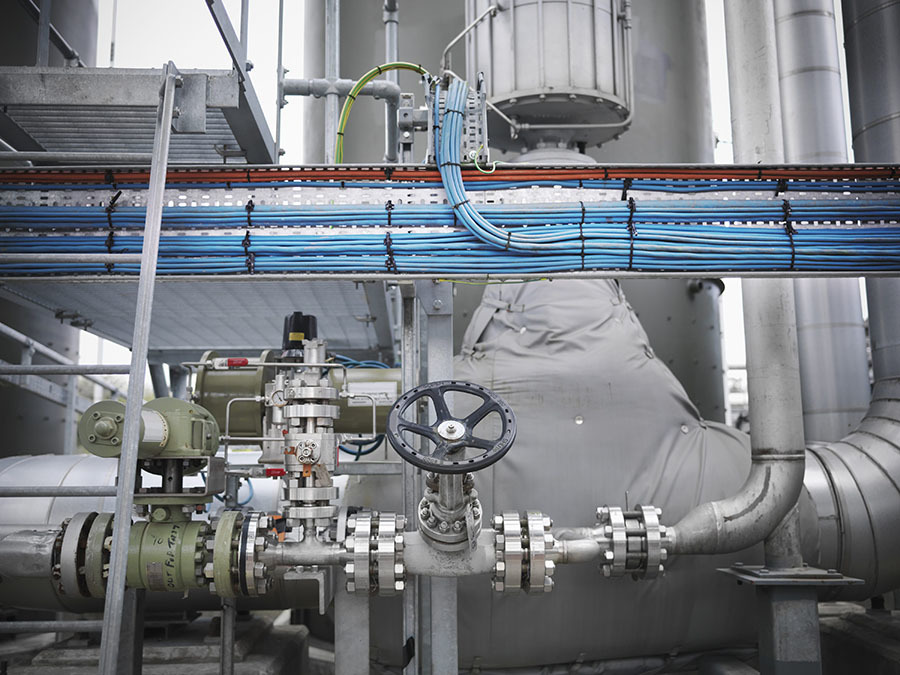Poland continues to buy Russian natural gas, but energy supplies are no longer directly from Russia, but through a reverse scheme through Germany.
On Thursday, April 28, said the official representative of "Gazprom" Sergei Kupriyanov.
“This week, Poland refused to pay for gas supplies from Russia under the new procedure, in rubles.
It was solemnly announced that Russian gas is no longer needed and will not be bought.
But in fact, this is not so, ”TASS quotes Kupriyanov.
According to him, Russian energy raw materials come to Poland in reverse from Germany via the Yamal-Europe gas pipeline.
The volume of deliveries is about 30 million cubic meters.
m per day, which almost exactly corresponds to the applications under the contract with Gazprom Export in previous days, Kupriyanov added.
On April 27, Russia completely suspended natural gas supplies to Poland and Bulgaria.
As Gazprom explained, the Polish company PGNiG and the Bulgarian Bulgargaz refused to pay for energy raw materials in rubles.
At the same time, both organizations were previously warned about the need for settlements in Russian currency.
Recall that from April 1, 2022, Moscow accepts payment for gas supplies to unfriendly countries only in rubles.
This decision was made on behalf of President Vladimir Putin in response to Western sanctions.
To purchase raw materials, foreign buyers must open two special accounts with Gazprombank: in foreign currency and in rubles.
First, the money must be transferred to a foreign currency account, after which the bank on the Moscow Exchange will exchange these funds for rubles and credit them to the ruble account.
Immediately after that, the foreign partner will be able to transfer rubles directly to the gas seller.
It should be noted that initially in Europe they declared their unwillingness to follow the requirements of Moscow.
However, a number of states in the region have already agreed to switch to a new settlement mechanism.
In particular, we are talking about Austria, Hungary and Germany.
“In fact, the Europeans themselves will still continue to buy fuel for the euro, and Gazprombank will directly deal with all issues of currency conversion.
Why Poland was not satisfied with this is a question only for those who made the decision and threatened the well-being of the country, ”said Nikolai Vavilov, a specialist in the Strategic Research Department of Total Research, in a conversation with RT.
According to him, purchases of energy resources by reverse through Germany can cost Poland much more.
As the expert explained, gas after it enters Germany ceases to be Russian, and Berlin has the right to dispose of it at its discretion.
In this regard, German companies can no longer sell gas to Warsaw at a fixed contract price, but at a high market value, along with interest for mediation, the analyst added.
“Germany buys a fairly large amount of gas from Russia and at the moment can painlessly insure Poland in terms of supplies.
However, this is a short story.
Poland will have to buy fuel at an inflated cost.
Ultimately, the rise in prices for utilities within the country can be very serious, ”Vavilov believes.
An indispensable resource
Earlier, as part of the sanctions policy, the European authorities discussed the imposition of an embargo on the import of natural gas and oil from Russia.
However, the countries of the region have not reached unity on this issue.
A number of EU states were categorically against the ban on the purchase of raw materials from Moscow.
Russia remains the largest supplier of natural gas to Europe.
According to the latest data from Eurostat, in 2020 Moscow provided 41% of the EU's needs for this type of fuel.
At that time, Poland was the most active buyer of Russian gas (55% of supplies came from the Russian Federation), Germany (66%), Bulgaria (75%), Slovakia (85%), Estonia (93%), Hungary (95%), Finland ( 98%), as well as Latvia and the Czech Republic (100%).
Legion Media
© Anthony Rakusen
At the same time, if, for example, Poland today is sufficiently provided with gas - the country's reserves are filled by more than 76% - then in a number of other EU countries there is a shortage of fuel.
In particular, Romania (21.5%), Slovakia (20.6%), Hungary (19.5%), Croatia (18.5%), Austria (17.7%) have the smallest stocks of raw materials as a percentage of storage volumes. %), Bulgaria (17.5%) and Belgium (14.4%).
Such data is provided by the European Gas Infrastructure Association (GIE).
“Almost the entire EU now cannot afford to roll back on Russian gas.
Firstly, not all countries have an infrastructure for receiving LNG, and it takes at least several years to build it.
Secondly, there is a problem with alternative suppliers.
There is objectively no excess gas on the market, and even Norway and Algeria, in the event of an increase in production, will not be able to replace Russian supplies, ”Sergei Pikin, director of the Energy Development Fund, told RT.
As a result, the complete cessation of gas supplies from Russia could lead to a rise in energy prices and the biggest economic crisis in the history of the EU.
Kirill Melnikov, head of the Energy Development Center, shared this opinion with RT.
“Under such circumstances, the GDP of the European Union will be reduced by 5%, which in terms of its economic consequences will exceed the effect of the pandemic.
Nevertheless, unfortunately, in the context of political confrontation, European leaders do not always objectively assess the risks of escalation and tend to underestimate them,” Melnikov added.

